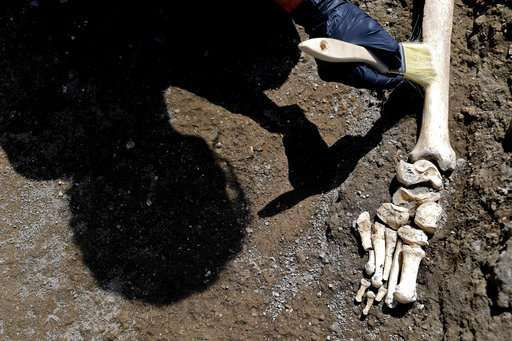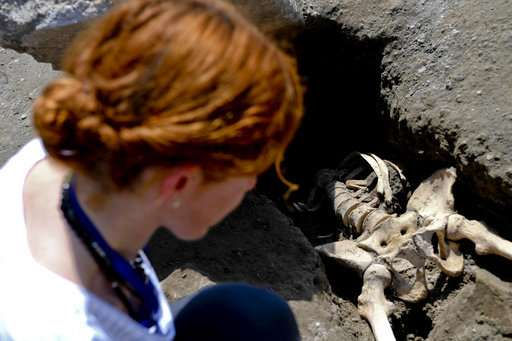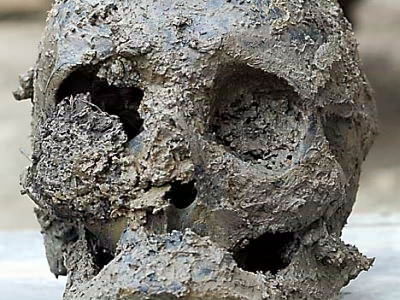Male bones crushed by rocks in ancient city Pompei are found

Ancient cities once said to exist in the suburbs of Italy · NaplesPompeiiis. Pompeii is known for being buried in the ground with pyroclastic flow caused by the eruption of Vesuvius Volcano, but new bones of "victim crushed by the huge rock falling trying to escape at the timing of eruption" have been discovered I will.
Pompeii: New find shows crushed trying to flee eruption
https://phys.org/news/2018-05-pompeii-eruption.html
Man decapitated while fleeing volcano's destruction of Pompeii | The Art Newspaper
https://www.theartnewspaper.com/news/man-decapitated-while-fleeing-volcano-s-eruption-discovered-in-pompeii
A community gathered by archaeologists investigating Pompei has reported that it has found "a bone snucked into the ground so as to be crushed by rocks crumbled by eruption" as an unprecedented discovery.
# PompeiiThe first victim which emerges in the site of the new excavations of Regio V, does not in this dramatic positionpic.twitter.com/qHZCS0W0Zd
- Pompeii Sites (@pompeii_sites)May 29, 2018
It is estimated that the bone that was discovered is a man of about 35 years old, and it is understood that the breast was crushed by the falling rock. According to an archaeologist who investigated the site, it seems that the bones of the male's head have not been found. Also, survey revealed that men had an infectious disease on the tibia, it was difficult to walk with the influence of infectious diseases, the Vesuvius lost the escape place when the volcano erupted and crushed by the rock It is considered to be. Archaeologist Massimo Osana, who is engaged in the survey, tells about the bone of the newly found male, "it is an exceptional discovery" that has never been seen before.
The following picture shows that anthropologist Valeria Amoretti is digging out the bones of a man who seems to have lived in Pompeii with a brush.

The upper body buried in the ground is snucked like a huge rock stabs.

The bone was found on May 29, 2018 local time.

It seems that the man was clasping a small bag containing silver in her hands.

The bone was found in the excavation site called "Regio 5". The area of "Regio 5" is about 66 hectares, which is still one-third of excavation work, so further discovery is expected.
Related Posts:
in Science, Posted by logu_ii







